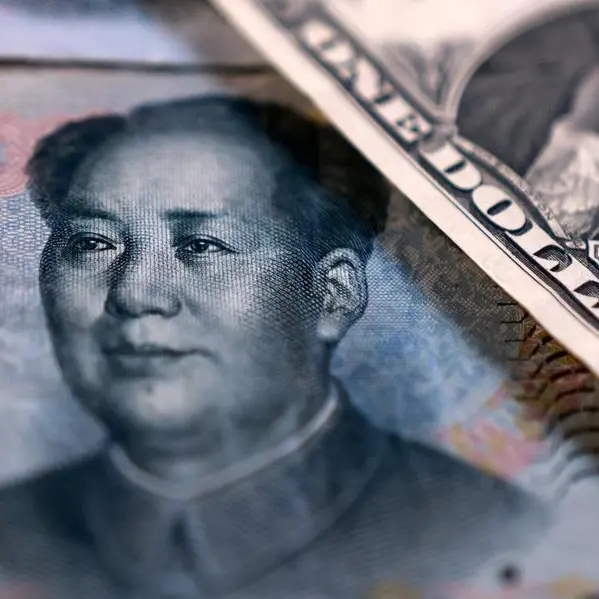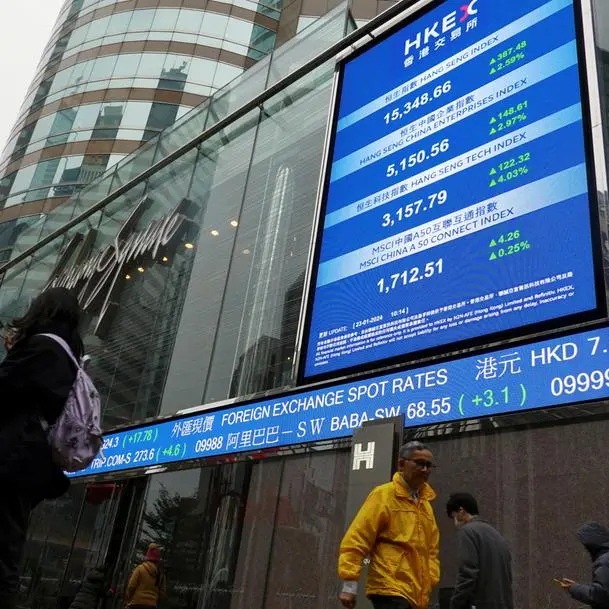PHOTO
Singaporean banks are set to post higher profits for the fourth quarter because of higher interest rates, though growth momentum is poised to slow as big central banks pivot toward rate cuts and volatile markets weigh on their mainstay wealth business.
The banks are also expected to see sharper scrutiny of their wealth management business, as a result of a $2.2-billion money laundering scandal that hit the Southeast Asian city-state last year, affecting the flow of assets, analysts say.
DBS Group, Singapore's No. 1 lender by assets, will kick off the earnings season on Wednesday, followed by Oversea-Chinese Banking Corp (OCBC) and United Overseas Bank (UOB) this month.
"We think earnings momentum for the Singapore banks has peaked," Thilan Wickramasinghe, Maybank Investment Banking Group's head of research for Singapore and regional head of financials.
"The tailwinds enjoyed by rising interest rates in 2023 are unlikely to sustain this year," he added.
Federal Reserve Chair Jerome Powell said on Wednesday that interest rates had peaked and would move lower in coming months. In Southeast Asia, Indonesia's central bank said this week it had room to lower interest rates this year to lift growth.
DBS is expected to post a 2.9% rise in earnings per share (EPS) in the fourth quarter versus a year earlier, and the EPS is forecast to drop 2.09% in the March quarter from a year earlier, LSEG estimates showed.
OCBC and UOB are expected to show the same trend, the data showed.
Besides higher global interest rates, Singapore banks have also benefited from strong inflows of wealth over the last few years.
The city-state's biggest money laundering case, however, has resulted in banks taking longer than usual to perform due diligence on clients and closing accounts in some cases, which, some analysts say, will weigh on their wealth business.
"The banks would have more stringent AML and CDD procedures to follow, which could increase expenses as more employees and time is required," said Glenn Thum, senior research analyst at Phillip Securities Research.
AML and CDD refer to anti-money laundering and customer due diligence.
"The banks would also need to be more careful in accepting customers and loans, which could hamper their desired growth," Thum added.
Faced with the challenges, the Singaporean banks are likely to bet on a surge in fee income and a recovery in loan growth as interest rates start to dip to cushion the impact on earnings, Thum said.
(Reporting by Yantoultra Ngui in Singapore; Additional reporting by Vineet Sachdev in Bengaluru; Editing by Sumeet Chatterjee and Gerry Doyle)





















